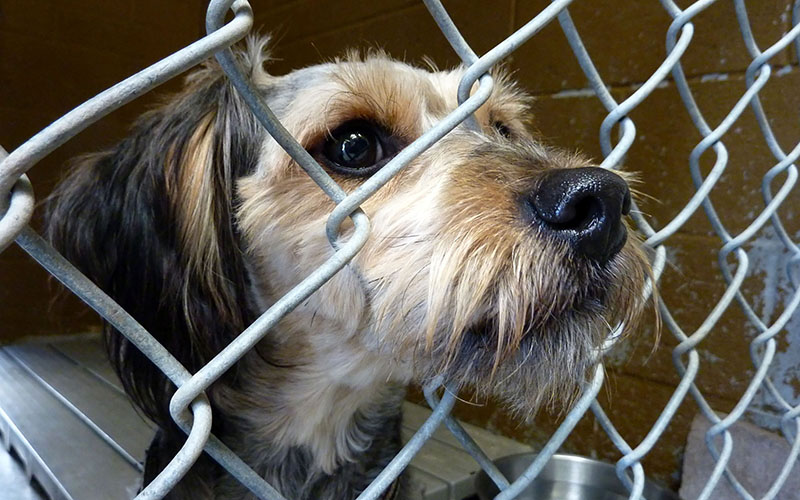WASHINGTON – Arizona ranks high on the list of “most humane states,” but officials and animal advocates are still welcoming a new federal law they said will let them fight animal cruelty that crosses state lines.
“Our officers investigate thousands of animal cruelty cases each year, but have been unable to truly bring justice for the animals in instances when the cruelty occurs across multiple jurisdictions,” said Chris Schindler, Humane Rescue Alliance’s vice president of field services, in an email.
President Trump on Monday signed the Preventing Animal Cruelty and Torture (PACT) Act, a bipartisan measure that expands on a 2010 law that banned the creation and distribution of “animal crush videos” – any image that shows animals being “intentionally crushed, burned, drowned, suffocated, impaled, or otherwise subjected to serious bodily injury.”
The 2019 version, introduced in January by Rep. Ted Deutch, D-Fla., and Rep. Vern Buchanan, R-Fla., makes animal crushing itself a crime punishable by a fine or up to seven years in prison or both. It passed the House in October and was approved by the Senate earlier this month, both times by voice vote.
Schindler called the act “a monumental step” to laying groundwork to further protect animals, particularly in dealing with interstate animal cruelty.
Bretta Nelson, public relations manager of the Arizona Humane Society, said the bill will “expand awareness of animal cruelty on a national level” and hold abusers accountable.
It comes as the Arizona Humane Society has seen a 3.9% increase in animal cruelty reports this year over last year. Nelson attributed that in part to H.B. 2671, a state law that took effect in August stiffening penalties for knowingly mistreating or killing a domestic animal from a class 6 to a class 5 felony, which carries up to two years in prison.
The bill was the result of a 4-year Humane Society effort and a “huge win for Valley animals and for the state of Arizona,” Nelson said.
She said there’s already a case under the stricter law involving a pug, Miso, that was hanged by his owner, who shared videos of the abuse from his cell phone. That prompted the Humane Society to take in the dog, which had suffered multiple injuries including a broken pelvis and ribs.
Kellye Pinkleton, the Humane Society’s senior state director in Arizona, said the state also toughened animal cruelty laws last year and approved a ban on wildlife killing contests in September.
Pinkleton hope those changes can help boost Arizona from its current spot of ninth, tied with Maine, on the Humane Society of the United States’ list of the most-humane states in 2018. When it released those rankings, however, the Humane Society of the United States said Arizona needed to work on farm animal cruelty, hunting restrictions, animal research and puppy mill abuses, and requiring state emergency response plans to include pets.
Amanda Ventura, spokeswoman for the Arizona Animal Welfare League, said there still is room for improvement in the law. She and Nelson would like to see the state take stronger action against so-called “puppy mills” and improve the definition of adequate care when it comes to food and water standards for animals.
“Our law enforcement professionals’ hands are tied in many cases due to lax laws,” Ventura said.
Nelson said the Arizona Humane Society mainly sees cases of animals without water, shelter or welfare checks, as well as being stabbed, shot or left in hot cars.
“As awareness of these laws increase across the country, people will think twice before inflicting harm upon an animal,” she said. “This will be a national discussion for animals who have no voice.”
The PACT Act had more than 300 co-sponsors, including six from Arizona: Republican Reps. Debbie Lesko of Peoria and David Schweikert of Fountain Hills, and Democratic Reps. Raul Grijalva and Ann Kirkpatrick of Tucson, Tom O’Halleran of Sedona and Ruben Gallego of Phoenix.
“I am proud to support this legislation that will protect animals from inhumane treatment and punish those who choose to exhibit such repulsive acts,” Schweikert said in a statement after the bill passed the House.
